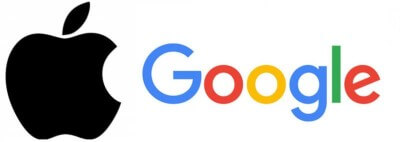
As online marketers and ad tech firms, it seems like we have been dealing with all too much chaos in the last few years. Apple Safari ITP X.X, Firefox ETP, GDPR and CCPA have all created havoc in the online advertising space. Yet, with Google Chrome having approximately 65% of browser market share, these all seem to pale in comparison with the recent announcement by Google that they plan to kill the 3rd party cookie in Chrome by 2022.
While this move has been a long time in the making, the reality for ad tech is that the official death of the 3rd party cookie impacts everything in the world of online marketing. Deterministic retargeting will no longer be possible, even for Google and Facebook and major players like AdRoll and Criteo. Web publishers that make a living by monetizing their traffic will also face steep declines in CPMs and revenue without the ability to provide user-level targeting. And forget about accurate conversion attribution, at least on the view-through side.
As we look at what the industry is saying about Google’s move, the conversations regarding creating walled gardens, leveraging first party data, and the need to go back to contextual advertising are abound. And perhaps this is the only way forward.
Google stands to gain considerably from its decision to no longer support 3rd party cookies in Chrome and must play its cards carefully. Between Facebook, Google and Amazon, some estimates put this group at capturing 65% or more of online traffic tied to 1st party identity in their respective walled gardens. As a result, the inability to target “people” online using 3rd party cookies should bode quite well for Google and its cohorts with increased ad demand and spend. This is most likely the reason that Google is undertaking their Privacy Sandbox effort and taking its time before finalizing their move. Just think back to the days of “United States v. Microsoft Corporation” and the heat that Microsoft faced for bundling Internet Explorer with Windows to envision what kind of DOJ pressure Google may face if it doesn’t tread lightly.
Apple and Google claim their move to kill the 3rd party cookie is due to the antiquated nature of the technology and their efforts to protect user privacy on the web. While I agree that 3rd party cookies are antiquated and inefficient and also believe in protecting user privacy rights, I can’t help but see a double standard in how Google (via Android) and Apple (via IOS) operate in their respective mobile app environments vs. their privacy stance on the web.
Both Android and IOS support the concept of a Mobile Ad Id (termed IDFA in IOS and AAID is Android), which is a semi-persistent identifier that can be shared between apps on a given mobile device. On both Android and IOS, a user can reset this Mobile Ad Id at any time, which is the app equivalent of clearing your cookies on your browser. Also, this Mobile Ad Id is allowed be shared with ad networks for targeting purposes. While both Google and Apple’s terms appear to prohibit this Id from being associated with any type of PII by app publishers, it is clear that this is not the reality.
So why is there a double standard for Google and Apple in the app world? Why is it okay to allow users to be tracked and advertised to across apps, but not on the web? My guess is that this capability increases the value proposition and revenue for its app publishers, not to mention that Google, and possibly Apple, both financially benefit from the more advanced ad targeting the Mobile Ad Id provides.
Recent commentaries call out the Apple and Google double standard and predict that the Mobile Ad Id is the next to go by the wayside. If Apple and Google solely care about privacy and not revenue, then that might be exactly what happens. However, I agree with IAB Tech Labs Jordan Mitchell’s blog post that this type of model would work well as a replacement for 3rd party cookies in the browser, assuming the major players would support it. If we could create a semi-persistent ID on a browser like that in the app world, we could create a simple mechanism that supports privacy controls and persistent opts outs for the consumer, while protecting the existing online advertising ecosystem.
Where things will end up is hard to predict, but one thing seems clear – Apple and Google can’t have it both ways. They either need to provide a replacement mechanism that supports user-level ad targeting across the web or they need to create a consistent privacy experience across both the web and the apps which are hosted in their respective operating systems.
